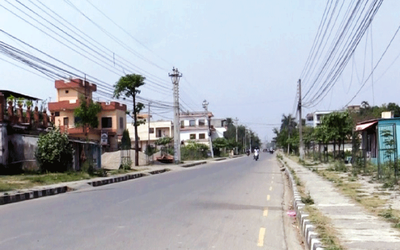India’s top diplomats have just concluded their fourth heads of mission conference here and are returning to their respective stations abroad with the brief that economic diplomacy must be enmeshed with hard politics so as to best showcase India’s many and multi-dimensional strengths abroad.
Led by the prime minister and the president, India’s key ministers and advisors ‘ including External Affairs minister S M Krishna, Commerce & Industries minister Anand Sharma, Home minister Sushil Shinde and National Security Advisor Shiv Shanker Menon — were at hand to address over a 100 diplomats at Vigyan Bhavan for the better part of three days. And because this is the fourth year running that such a conference has been held annually, its lead speakers were said to have also ably described the many ways in which India has changed since they last met.
Montek Singh Ahluwalia and Ramachandra Guha were guest speakers at events hosted by India’s key business chambers, the Confederation of Indian Industry and the Federation of Indian Chambers of Commerce & Industry, respectively, the first speaking about India’s economic challenges and the second on the continuing challenges around the magnificent social and democratic experiment that is India.
Over these several hours of brainstorming — conceived, conceptualised and ably led by the quiet and understated Foreign Secretary Ranjan Mathai, according to several diplomats who participated in the meetings — four major areas of discussion stood out : The crisis in the Euro-zone and its impact on India, the challenges in India’s neighbourhood, the ongoing Arab spring and its implications, and the attempt at transforming the climate for inward investment through the revamped National Investment and Manufacturing Zones (NIMZ) policy.
A joint presentation on the last by Saurabh Chandra, secretary of the Department of Industrial Policy & Promotion (DIPP) and Amitabh Kant, CEO of the Delhi-Mumbai Industrial Corridor, exemplified how India once again stood on the cusp of a big idea and how modernity could be married to civilisational values to produce real change.
This, of course, is the $900 billion project between Delhi and Mumbai, on both sides of a 1483 km-long railway track, where 24 brand new cities are promising to transform India’s skyline in the next decade or so. Seeded by Japan, the DMIC is the stepping-stone that will herald world-class manufacturing and trading, underpinned by world-class infrastructure, Kant said.
Economic diplomacy was a key term for this conference, with several speakers pointing out how the rules of economic engagement and the traditional articulation of hard power could no longer be divorced from each other. The world had changed so much, these speakers said, that free trade treaties or their variants ‘ whether it was with Pakistan or with the European Union ‘ were underpinned by the idea and extent of political partnerships that India wanted to cement with these countries.
A discussion on the ongoing Arab spring and its manifestations in Syria and Libya as well as other parts of the Gulf was said to be one of the most interesting parts of the conference. Serving ambassadors in the region placed India’s dilemma in this regard squarely in front of their audience : Should India side with the Western world, even though it was blatantly disregarding the rules of the game by determinedly siding with rebel forces in several Arab nations, or should India put its head down, hold its silence and only be concerned with its own energy security as well as its large populations that work and live there?
Diplomats who spoke to this reporter on the condition of anonymity pointed out that as India transitioned from a ‘non-aligned state’ to one in which ‘hard-headed realism’ was the dominant mantra of our times, dilemmas on how to deal with the new states in the Arab world would constitute one of its most important foreign policy challenges.
For example, Prime Minister Manmohan Singh was supposed to meet Egypt’s new president, Mohamed Morsi, during his visit to Teheran recently on the margins of the Non-Aligned summit. Except, Iranian president Mahmoud Ahmedinejad hijacked the PM and made him sit on the stage at the time of his meeting with Morsi, with the result that the scheduled slot was wasted and neither got to meet the other.
Then, there were the discussions on China — certainly the emerging world power, but also showing signs of inwardness and perhaps, even a siege mentality ‘ as well as on India’s neighbourhood, in which each country’s special challenges were addressed. How does India deal with the powerful military in Pakistan even as the political parties tried to reclaim a little bit of their rightful space everyday? What could India do in Bangladesh that did not exacerbate the feelings of betrayal in the ruling Awami League? How could India deal with the unfolding situation in Nepal, where it seemed as if the leftist and the rightist forces might even come together?
At the end of three days of jaw-jaw, several diplomats had one common comment about the ‘incredible tour de horizon’ of India’s strengths, weaknesses and threat perceptions by National Security Advisor Shiv Shanker Menon. ‘It was the most brilliant exposition we have heard in recent times,’ they said, with unusual unanimity and clarity.
Business Standard
- TANAHU HYDROPOWER PROEJCT: A Significant Achievement
- Apr 15, 2024
- AMBASSADOR HANAN GODAR: Sharing Pain With A Nepali Family
- Mar 30, 2024
- VISIT OF KfW AND EIB TO NEPAL : Mission Matters
- Mar 25, 2024
- NEPAL BRITAIN SOCIETY: Pratima Pande's Leadership
- Mar 24, 2024
- NEPAL ARMY DAY: Time To Recall Glory
- Mar 15, 2024















